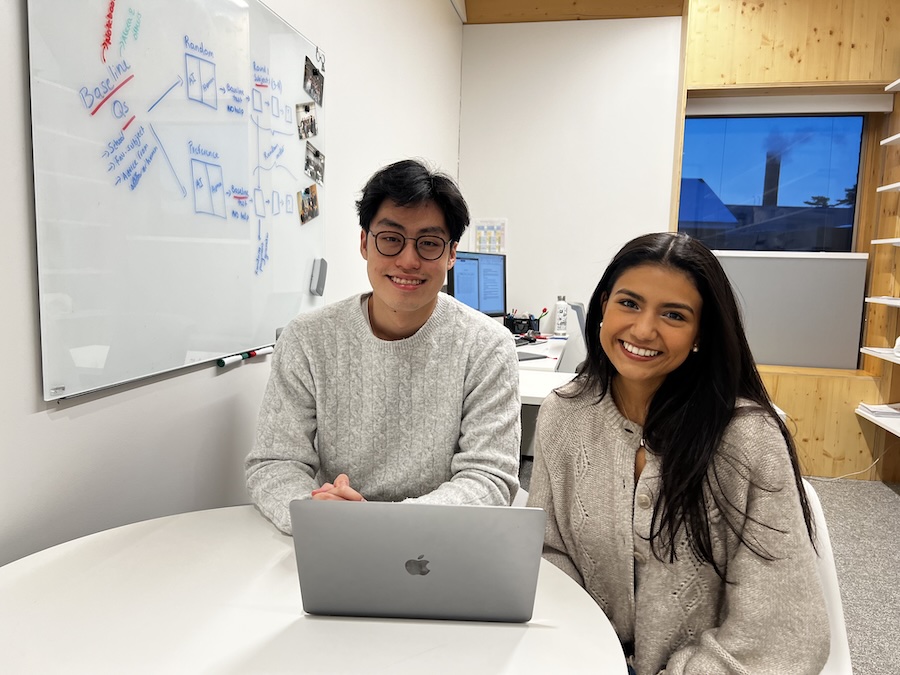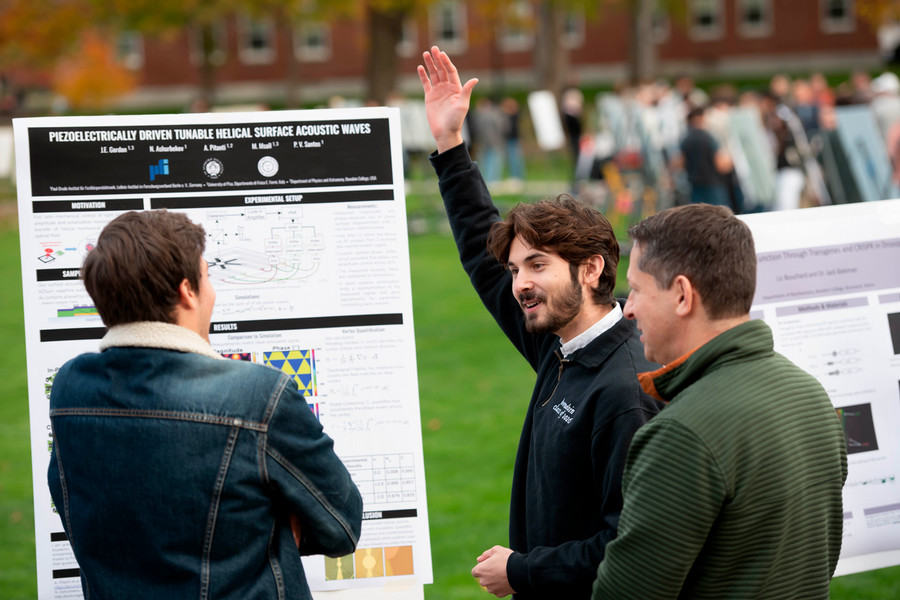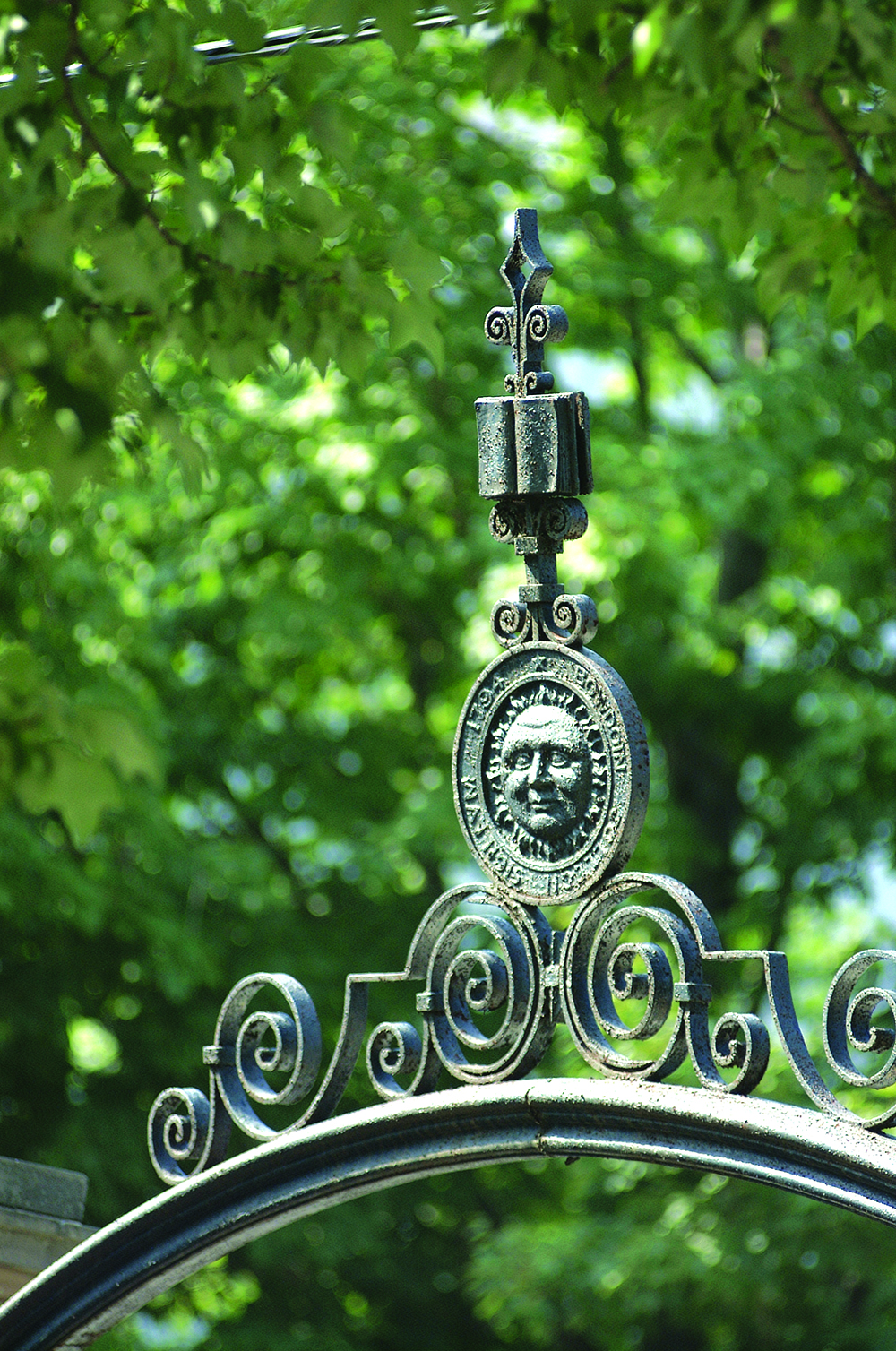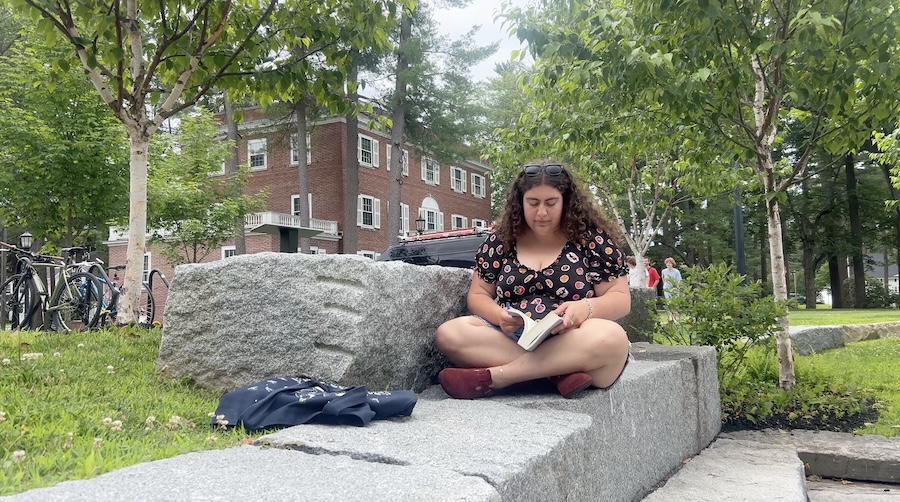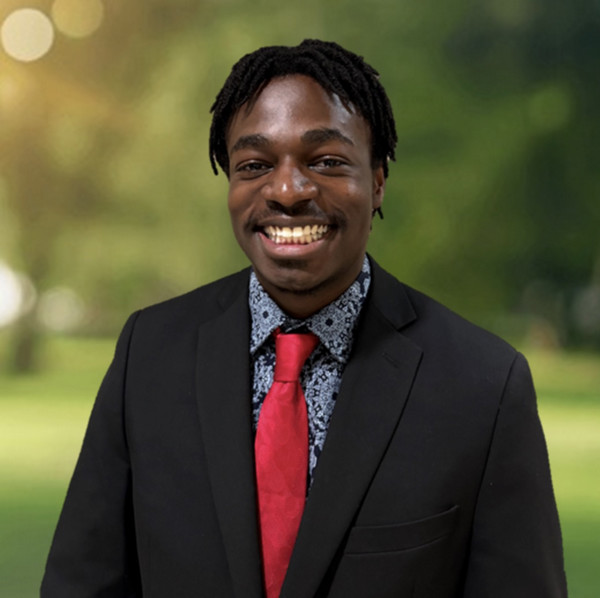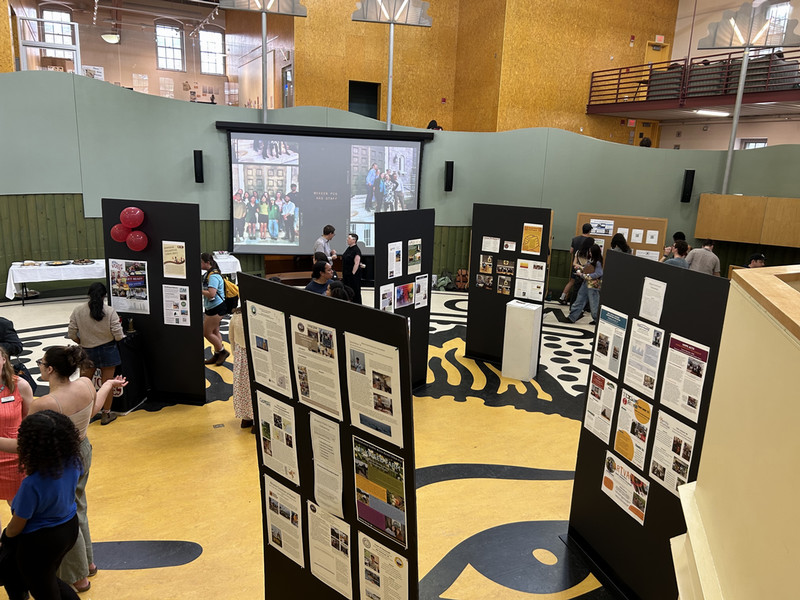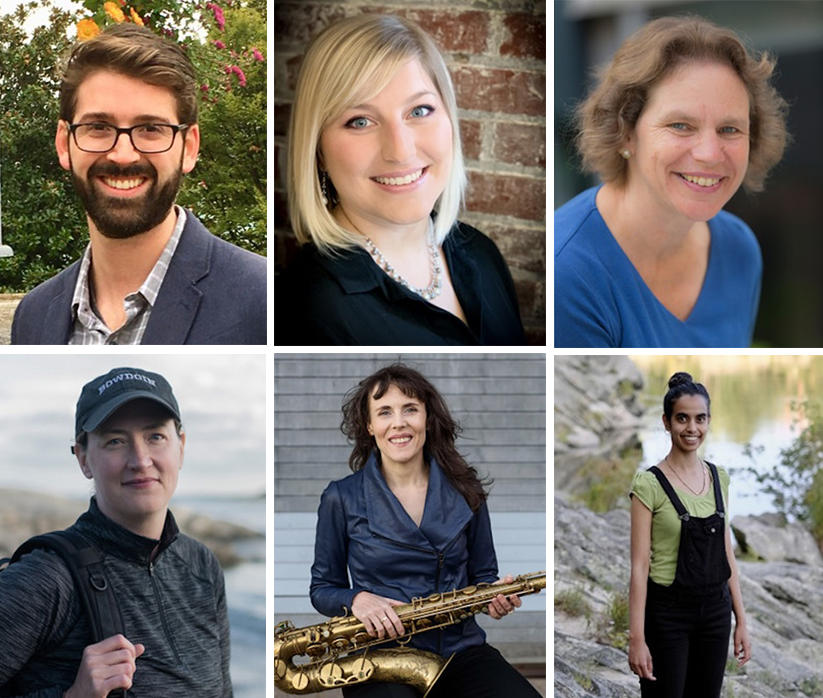Earth and Oceanographic Science (EOS) faculty and students at Bowdoin investigate fundamental questions about our planet’s past, present, and future.
In our courses and research programs, we sample rocks, sediments, shells, and waters to reconstruct Earth’s geologic history, including past climates. We study Earth’s systems at all scales—atoms to oceans—and use state-of-the-art instrumentation and data analysis to unravel Earth’s past so that we can better understand and prepare for our future.
EOS students learn the skills and knowledge to address questions such as: where will we secure fresh water to meet the needs of a growing global population? How will landslides triggered by more extreme storms affect populations? Do decreases in snowpack and glaciation in response to modern climate change impact volcanic hazards? How does natural resource extraction impact the Earth system?
From tracking how a harmful algal bloom develops along our coastline to learning how supervolcanoes form deep within the Earth, a degree in EOS opens up a world of possibilities.
